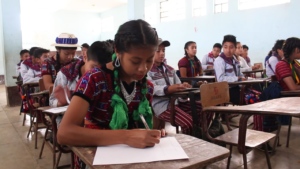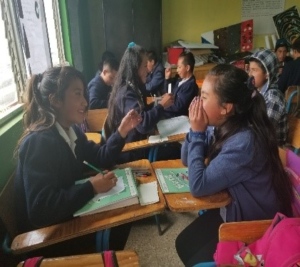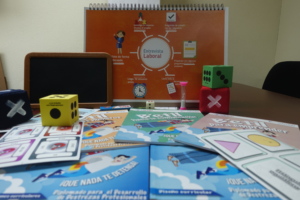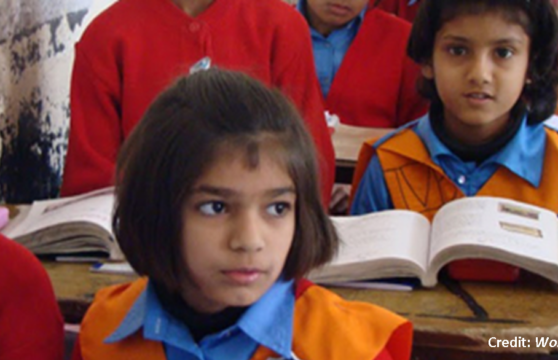How Important is Chinese Lending to Latin America?
Chinese lending to Latin America and the Caribbean hit an all-time high of $37 billion in 2010.

Guatemala’s development has been constrained by low economic performance due to a largely informal economy and an unskilled labor force. In turn, low levels of education and low wages make it difficult for the country to compete in an increasingly globalized economy.
Facing few options for well-paid employment, Guatemalans have looked for alternate ways to support themselves. Migration is a common choice among those who want to improve their living conditions, and those of their families. Many of those who migrate have lacked access to a quality education that prepared them to enter the skilled labor force.
High-quality education plays a fundamental role in building human capital[1] and has important implications for the future of a labor force. Unfortunately, educational quality in Guatemala does not reach the entire population, which reinforces and replicates patterns of economic inequality in the country. Consequently, educational outcomes in Guatemala are low, with only one fifth of students at the secondary level reaching national standards in reading and math. [2]
Responding to these realities, the Opportunities for My Community Project has implemented an extracurricular education program for middle school students in communities in Guatemala’s Western Highlands, where migration is especially high. This program provides youth with a high quality educational and pre-professional opportunity that helps prepare them to enter an increasingly competitive and globalized economy.

Through its extracurricular program, the B’etil Diploma for the Development of Professional Skills[3], the Opportunities for My Community Project works to improve academic outcomes for youth and to keep them in school. The B’etil Diploma has three modules that focus on math, communication and entrepreneurship. The methodology is innovative, creative and hands-on. The approach encourages students to apply their classroom learning to everyday situations. Although the B’etil Diploma so far has been taught primarily in schools in the Western Highlands, the model could easily be replicated and scaled.
Since its inception, the extracurricular program was planned to be easily replicable. Its contents, methodology, and materials were developed focusing on practicality for teachers, and on providing knowledge while been fun and innovative for students. Moreover, the B’etil Diploma is designed so that teachers can adapt the content according to student grade level and age, which generally ranges from 12 to 16 years.
In order to maximize the positive impacts of the B’etil Diploma, the project freely shares its lesson plans and materials in order to benefit additional students. For example, 200 students at Instituto Nacional Experimental Gabriel Arriola Porres in Quetzaltenango used the contents and materials from the Diploma as part of their coursework on Business and Productivity. In addition, in the village of Xinaxoj, Huehuetenango, 53 students completed the entrepreneurship module; their participation began with a request from the school principal in that community, which the project responded to affirmatively.

Thanks to the replicability of the B’etil Diploma, student participation has expanded to additional communities. The Opportunities for My Community Project works with several diaspora groups who are supporting education in their hometowns in Guatemala. The Diploma has been successfully implemented in three of these communities: El Palmar, Quetzaltenango; Santa Catarina Mita, Jutiapa; and Nueva Concepción, Escuintla. The project has provided local teachers with the training, materials, and pedagogical support to implement the Diploma.
In this manner, the Opportunities for My Community Project’s extracurricular program lends itself to options to be scaled, repeated, shared and adapted. This ensures that youth in Guatemala have the skills and opportunities they need for a brighter future at home in Guatemala.
“The Diploma materials are excellent. I even use them to teach my regular classes. I showed them to a friend, who is a teacher here in my town, and now she’s using all of the Diploma games and exercises with the kids at her school.” – Anilú Aguirre, Volunteer Teacher, Santa Catarina Mita.
Chinese lending to Latin America and the Caribbean hit an all-time high of $37 billion in 2010.
Venezuelan president Nicolas Maduro left China last month with a supposed show of support from the Chinese government.
Why Pakistan represents “the biggest education reform challenge” and 12 lessons that are applicable to reform efforts around the globe.
